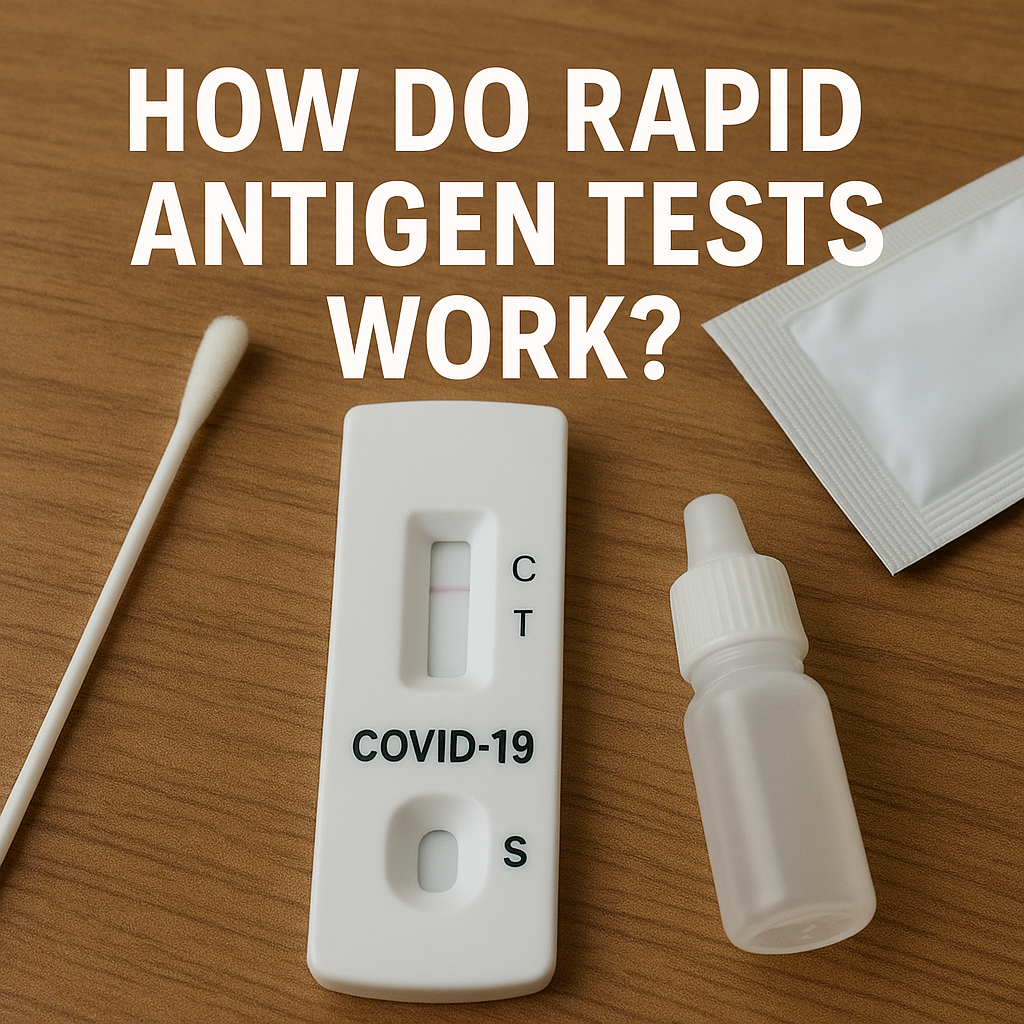Rapid antigen tests find the viral proteins that a patient may harbor in their sample. They return results in 15 to 30 minutes. Unlike PCR tests, which detect the virus’s RNA, these are quick and easy to use for screening patients and staff at clinics.
For Texas psychiatry practices, rapid antigen testing helps keep clinics safe and the practice open while still seeing patients. Psychiatry Billing Services in Texas with The Medicators. Your practice can thrive knowing you’re working alongside our trusted provider of Psychiatry Billing Services in Texas, and we know your medical claim workflow will flow as smoothly and accurately as it needs.
What is a Rapid Antigen Test?
A rapid antigen test is an antigen-detection test. It searches for viral proteins rather than the virus’s genetic material. The majority of tests are with a lateral flow immunoassay (LFI), which is also known as a lateral flow device (LFD).
These are commonly employed in clinics, point-of-care environments and at home. They are:
- Fast
- Affordable
- Convenient
Key Benefits for Psychiatry Clinics:
- Catch infections early to avoid outbreaks.
- Inexpensive and easily accessible to staff and patients.
- Support safe in-person therapy sessions.
How Rapid Antigen Tests Work
Quick antigen tests use antibodies on a test strip to detect viral proteins. Here’s how they work, step by step:
- Sample collection: You get a nasal or throat swab that picks up viral proteins.
- Processing of the sample: The swab is placed in a buffer to release antigens.
- Add to Test Strip: The sample is transferred onto a labeled antibody-laden lateral flow device.
- Prestige Medical Capillary Flow: The liquid moves down the strip. Specific antibodies bind to antigens and are retained at the test line (T) and control line (C).
Read Result:
- Positive: There are visible both test line and control line.
- Negative: Only the test control line is apparent.
- False: If there is no control line, repeat the test.
Rapid antigen tests are efficient. They’re identifying people with high viral loads, typically during the infectious period.
Rapid Antigen Test vs PCR
| Feature | Rapid Antigen Test | PCR Test |
| Detection Target | Viral proteins (antigens) | Viral RNA |
| Turnaround Time | 15–30 minutes | 24–48 hours |
| Sensitivity | Moderate (69–80%) | High (95–99%) |
| Specificity | High (97–99%) | Very High |
| Ideal Use | Screening, point-of-care | Diagnostic confirmation |
| Cost | Lower | Higher |
Example Scenario:
A psychiatry clinic in Dallas tests all staff and patients for the virus before an in-person therapy session can be scheduled. Positive cases are quickly detected by rapid antigen tests. PCR tests confirm results. This makes calls to the therapist secure and without interference.
Sensitivity, Specificity, and Accuracy
- Sensitivity: About 69–80%. Early infections may be missed.
- Specificity: About 97–99%. Positive results are usually accurate.
- Implications: Negative results should be verified by performing PCR if the patient is symptomatic or has had exposure.
Clinic-based rapid antigen tests have the advantage of infection control. The Meditators assist with generating reports as well as the management of Psychiatry Billing Services in Texas.
Procedure For Rapid Antigen Testing In Psychiatry Clinics
| Step | Description | Responsible Staff |
| Collect Sample | Nasal or throat swab | Nurse / Medical Assistant |
| Process Sample | Mix swab in buffer solution | Nurse / MA |
| Apply Sample | Add solution to test cassette | Nurse / MA |
| Read Result | Check test and control lines after 15–30 min | Physician / Nurse |
| Documentation & Billing | Record results and submit claims | Billing Team / The Medicators |
This process maintains the integrity, ease and compliance of your tests.
Practical Applications in Psychiatry Clinics
- Selection Criteria: Screening of patients prior to group therapy, admission as inpatients.
- Staff Testing: Reduce outbreak risks.
- Emergency interventions: Fast facts to help you tackle an urgent problem.
- Telehealth Decisions Negative results: can return to normal visits; positive results may mean shifting care to remote consultation.
Example:
A Houston psychiatry clinic administers rapid antigen tests in the flu season. Patients and staff are screened. Positive cases isolate immediately. The clinic remains safe. You can streamline your billing and claims process with The Perfect Rx.
Limitations of Rapid Antigen Tests
Rapid antigen tests have some downsides, however:
- Less sensitive than PCR; may miss early infections.
- False negatives may occur with low viral loads.
- Inaccuracies are introduced in such systems as a result of user’s errors (swab technique).
- False positive results are uncommon, but can occur.
Best Practices:
- Combine testing with symptom screening.
- Use PCR or test repeated in high-risk cases.
- Educate the trainees and patients in the correct procedure for the collection of a sample.
Conclusion
Emergency use authorization of rapid antigen tests is crucial to the future of safe and efficient psychiatry practices in Texas. They’re also rapid, inexpensive and very specific. Clinics can maintain patient care and minimize risks for infection.
Integration of these tests with streamlined workflows and support from The Medicators makes it easy for clinics to concentrate on their patients. Specialist Texas Psychiatry Billing Services that offers Compliance & Well-organized Insurance Claims. Clinics remain safe, compliant and financially organized with rapid antigen testing. To schedule your appointment with the highest standard of care, visit Sahara West Urgent Care on our website, where you can also explore more informative blogs



